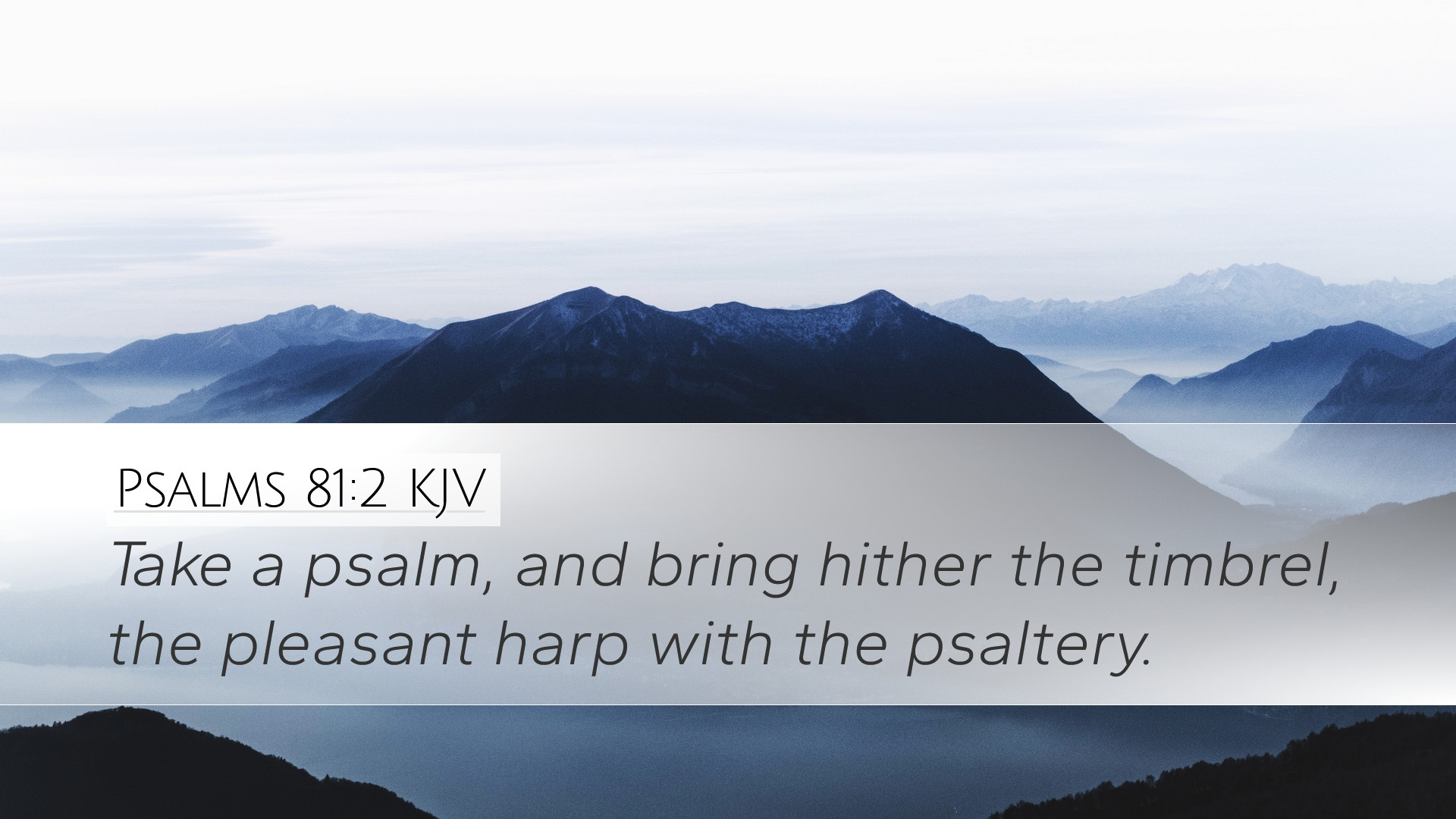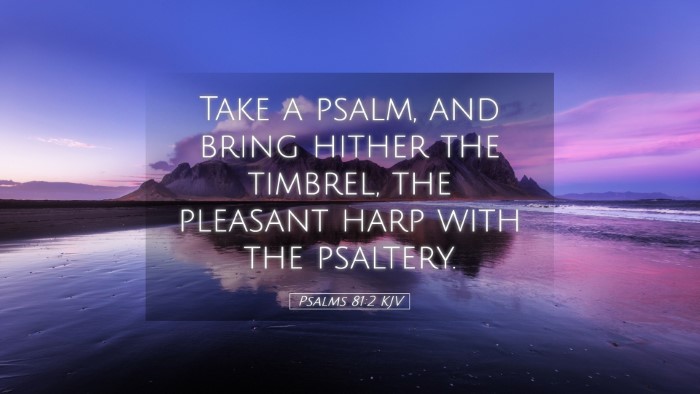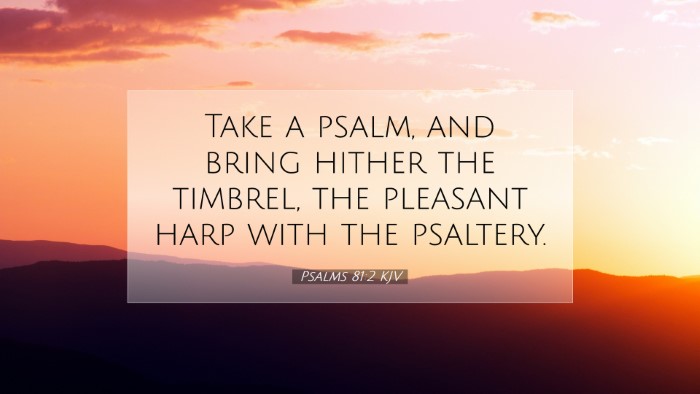Psalms 81:2 Commentary
Psalms 81:2
The verse reads: "Take a psalm and bring hither the timbrel, the pleasant harp with the psaltery." This verse calls for musical instruments to be brought forth, indicating the joyful and celebratory nature of worship in ancient Israel.
Contextual Analysis
This verse is nestled within a psalm that emphasizes Israel's relationship with God, particularly in the context of worship and deliverance. The psalmist reminds the people of God’s past interventions and encourages a response through praise.
Insights from Public Domain Commentaries
Matthew Henry's Commentary
Matthew Henry notes that this psalm is meant for a day of fasting and celebration. It serves as a reminder for the Israelites to remember their God and the way He has sustained them. He emphasizes that joyful songs and music are essential parts of worship, illustrating that the expression of faith is not merely in words but also in actions and emotions.
Henry also points out that the demand for musical instruments, like the harp and timbrel, signifies the importance of engaging the whole being—body, mind, and spirit—in reverence toward God. Music, therefore, is not just entertainment; it is a vital component of worship that connects the congregation with the divine.
Albert Barnes' Notes
Albert Barnes elaborates on the significance of the instruments mentioned in this verse. The timbrel, often associated with merrymaking, represents joy and celebration, while the harp and psaltery symbolize more restrained, reflective elements of worship. The combination of these instruments suggests that worship is multifaceted and must encompass a range of emotions from joy to solemnity.
Barnes also emphasizes that this verse is an invitation not just to an act of musical praise but to a communal gathering to honor God. The call to bring forth instruments serves as a reminder that worship is best when it is collective and encourages participation.
Adam Clarke's Commentary
Adam Clarke reflects on the nature of the psalm being a joyful call to worship. He mentions the historical context of Israel's festivals where music played a pivotal role. Clarke suggests that the psalmist's instructions mirror the practices of ancient Israel, where instruments were central to their communal worship experience.
Furthermore, Clarke points out that the psalm becomes a preparatory call to the people of Israel to engage in praise actively. The command to "take a psalm" indicates a deliberate choice to remember and recite the acts of God’s faithfulness through music, which is an important aspect of sustaining faith within a community.
Theological Reflections
This verse encourages reflections on the nature of worship within the Christian tradition. It raises the question: What role do music and instruments play in contemporary worship? Worship that is vibrant and expressive is supported by this scripture, engaging worshippers in a holistic experience that incorporates both heartfelt emotion and creative expression.
Practical Applications for Ministries
- Incorporation of Music: Churches are encouraged to incorporate various forms of music in their services. This verse illustrates that all types of music can facilitate a deeper connection with God.
- Community Engagement: Like in ancient Israel, congregational worship should be a communal act involving participation from all members, enhancing community bonds through collective praise.
- Emotional Expression: Encouraging emotional expression in worship can create an atmosphere where congregants feel free to engage wholeheartedly in the worship experience.
Conclusion
Psalm 81:2 encapsulates the joyful invitation to worship with music, illustrating the rich tradition of using musical instruments to express faith and gratitude to God. By understanding the layers of meaning from public domain commentaries, pastors, theologians, and students can glean valuable insights into the power of worship through music and the importance of community involvement in spiritual practices.


